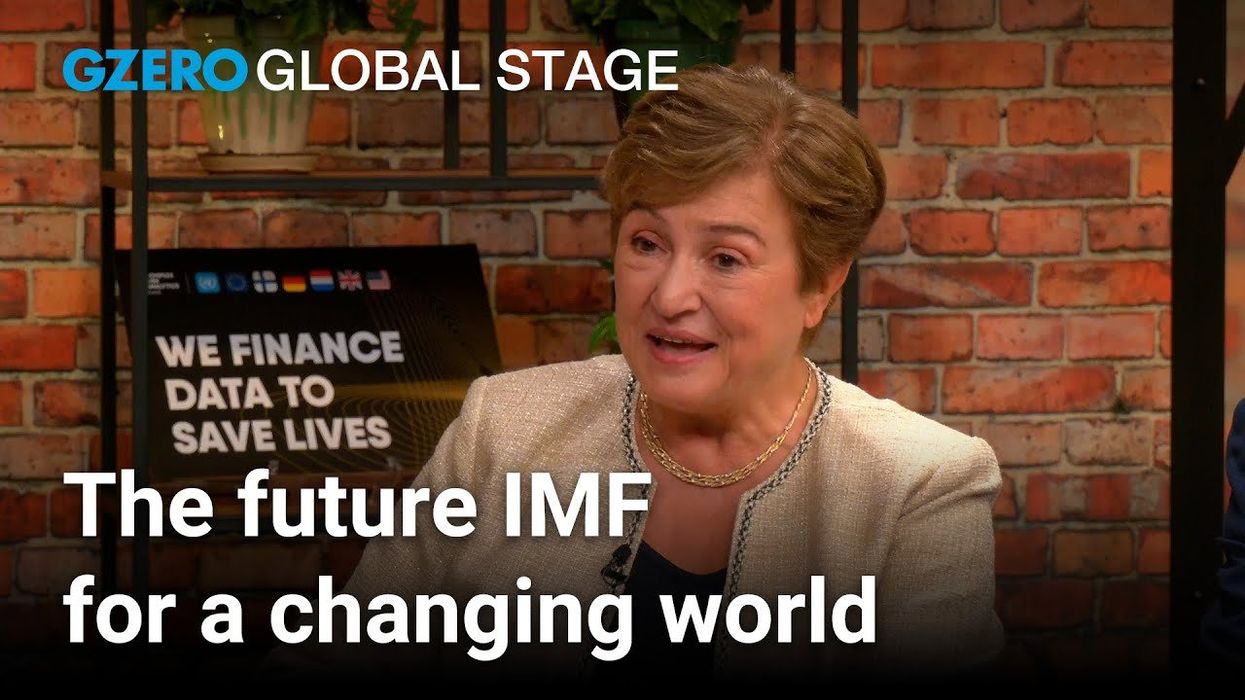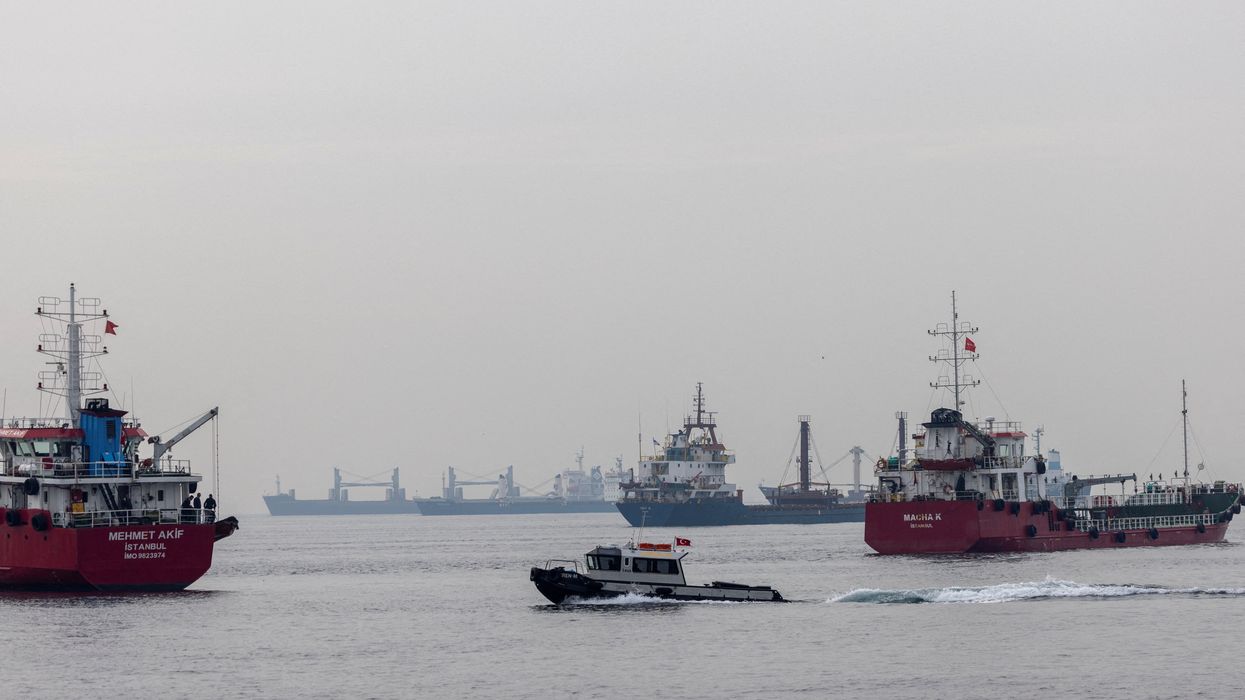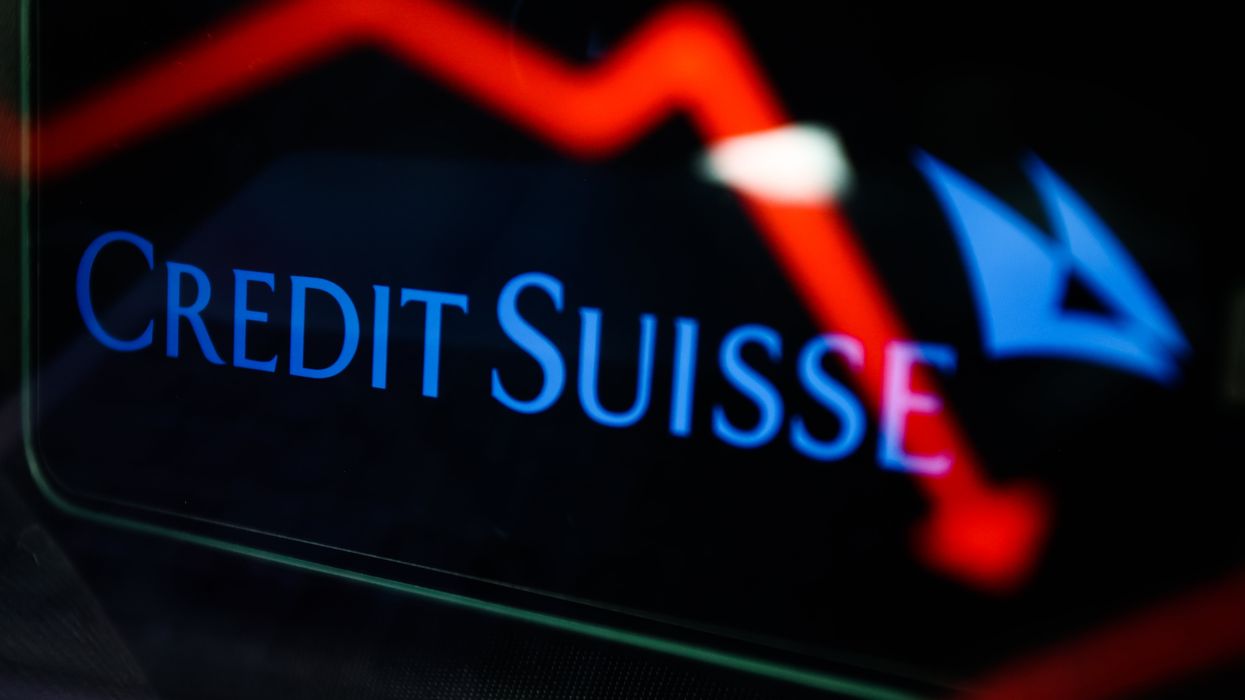UN General Assembly
IMF's Kristalina Georgieva: We help countries build resilience to handle shocks
In a GZERO Global Stage discussion at the 79th UN General Assembly, IMF Managing Director Kristalina Georgieva expressed pride in the institution’s proactive response during a period marked by global crises. Georgieva emphasized that the IMF’s role extends beyond financial aid by helping countries build strong policies and institutions, ensuring resilience in the face of shocks.
Oct 03, 2024



